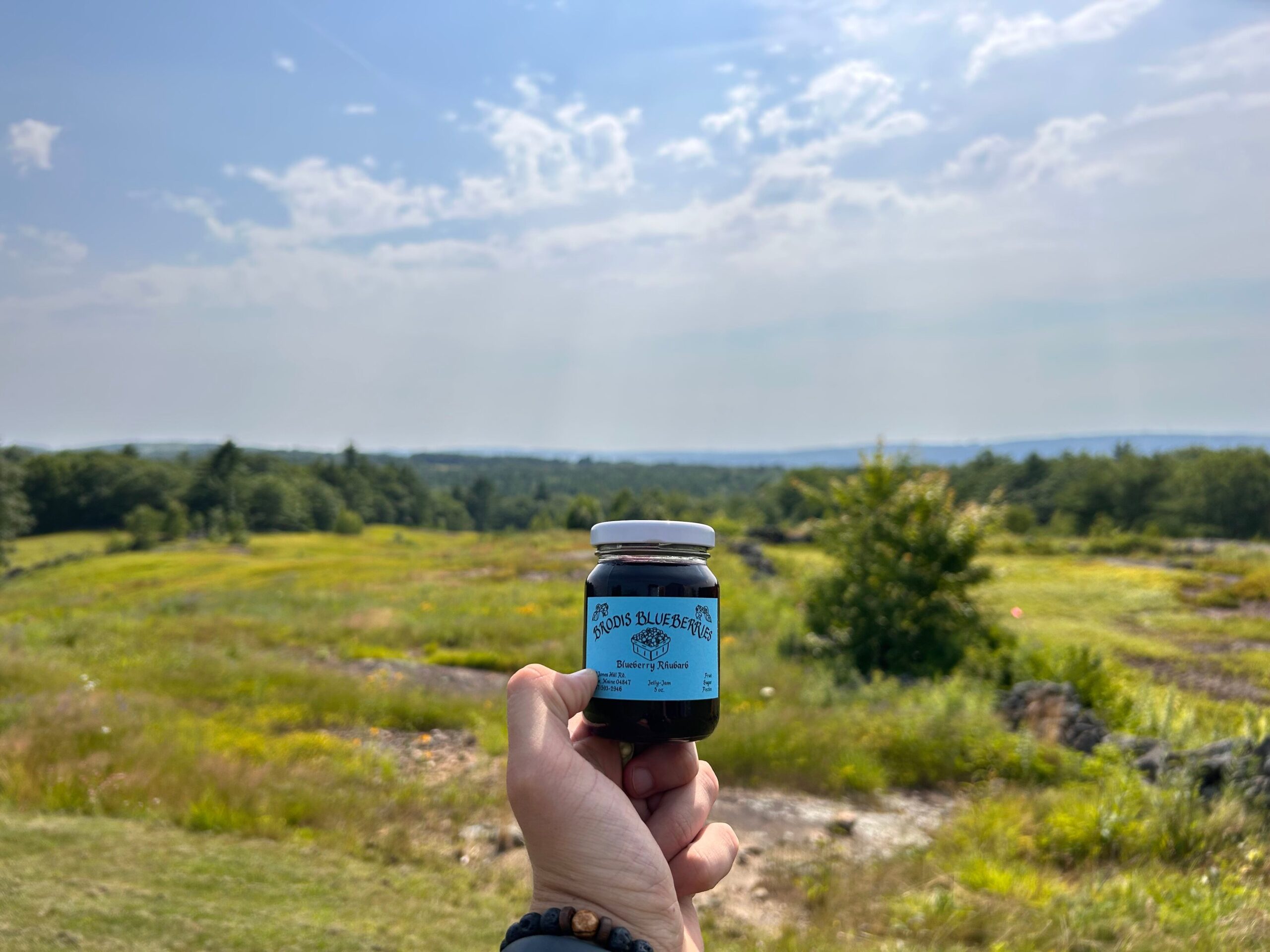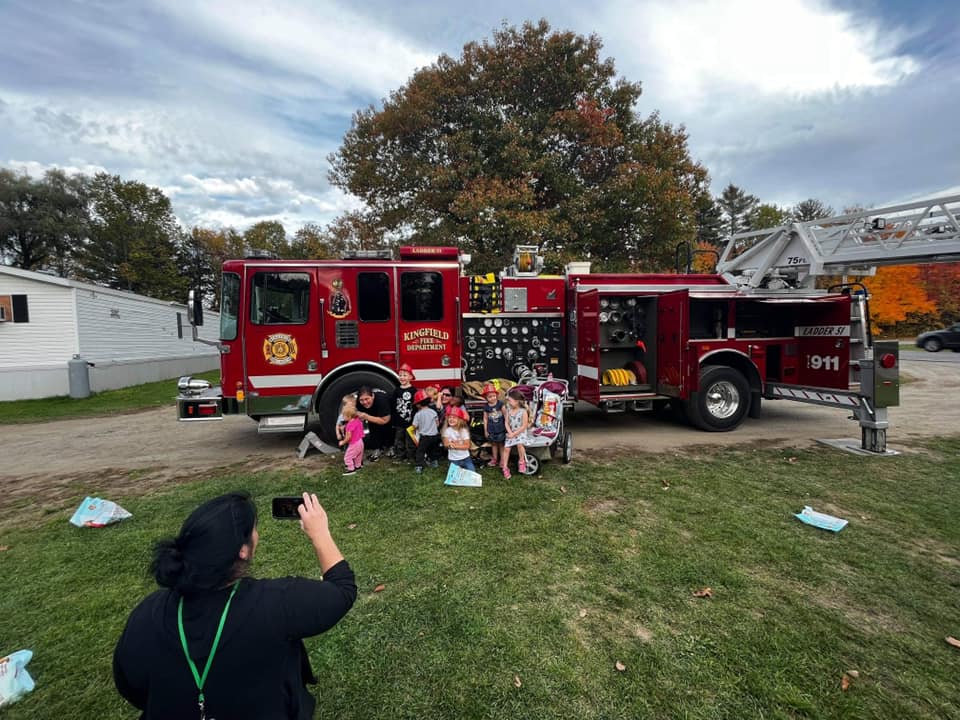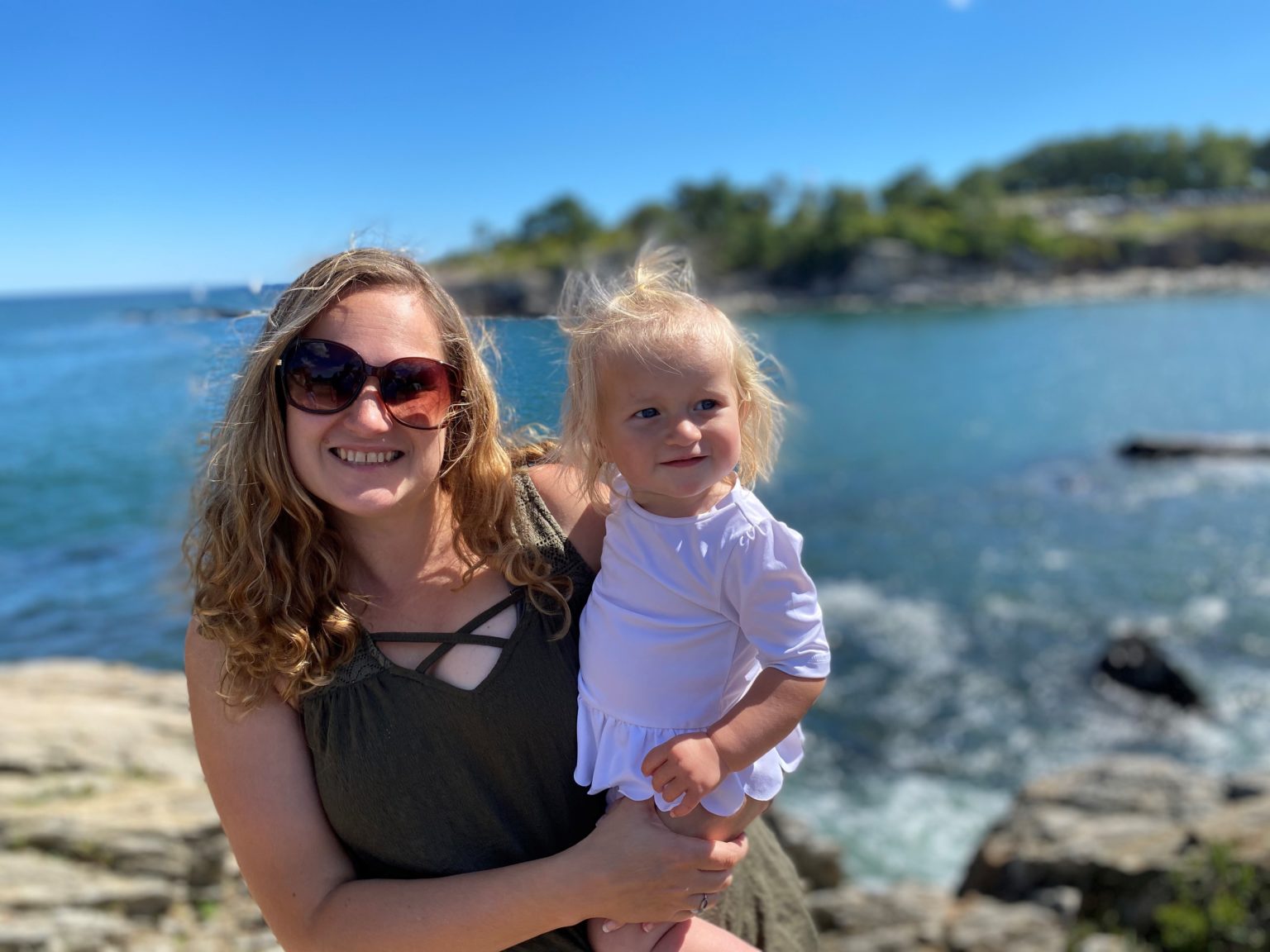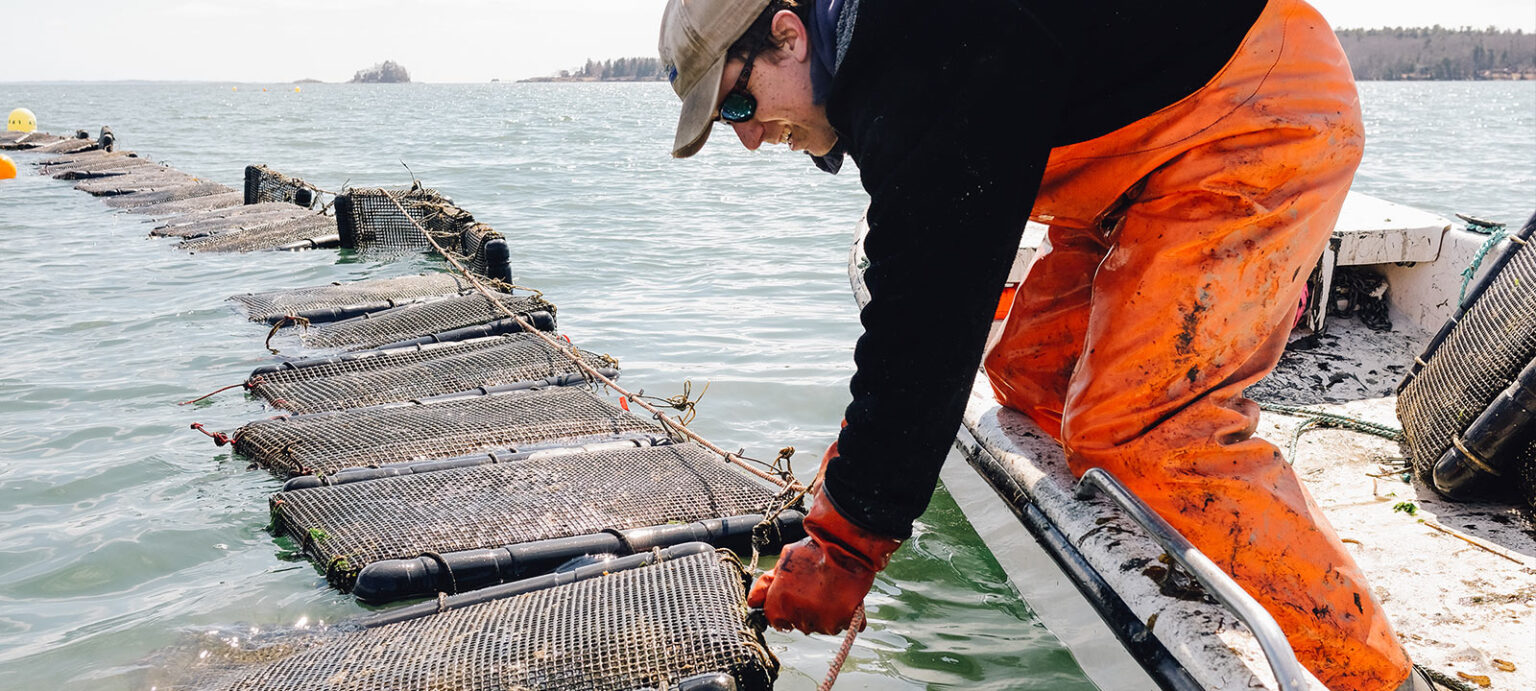July 19, 2023
Brodis Blueberries
For nine generations, the Brodis family have tended to their lands in Hope, Maine. Over the years, their immense efforts have slowly turned to wild blueberry farming. Now, the Brodis family produces some of the best blueberries in the world, along with an incredible distillery and other products, and they sell them all right from the farm. Ron Howard married into the Brodis family and has since joined the effort to make the farm as productive as possible. He has an immense love of the land and uses his background in corporate America to help lead the farm to success.
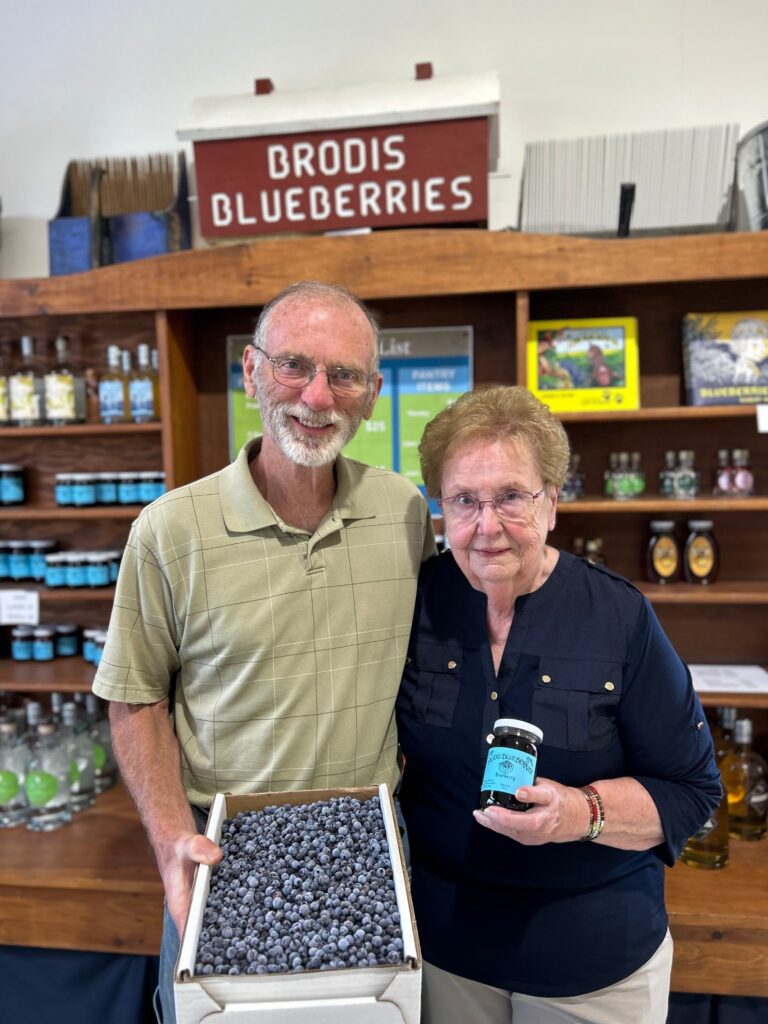
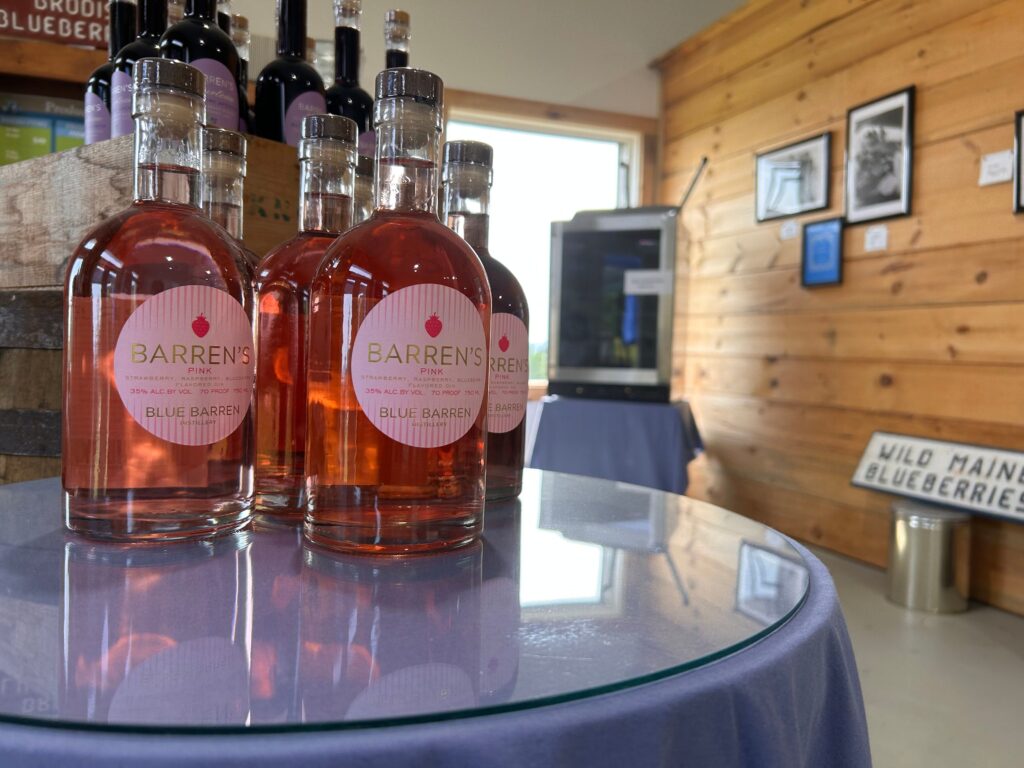
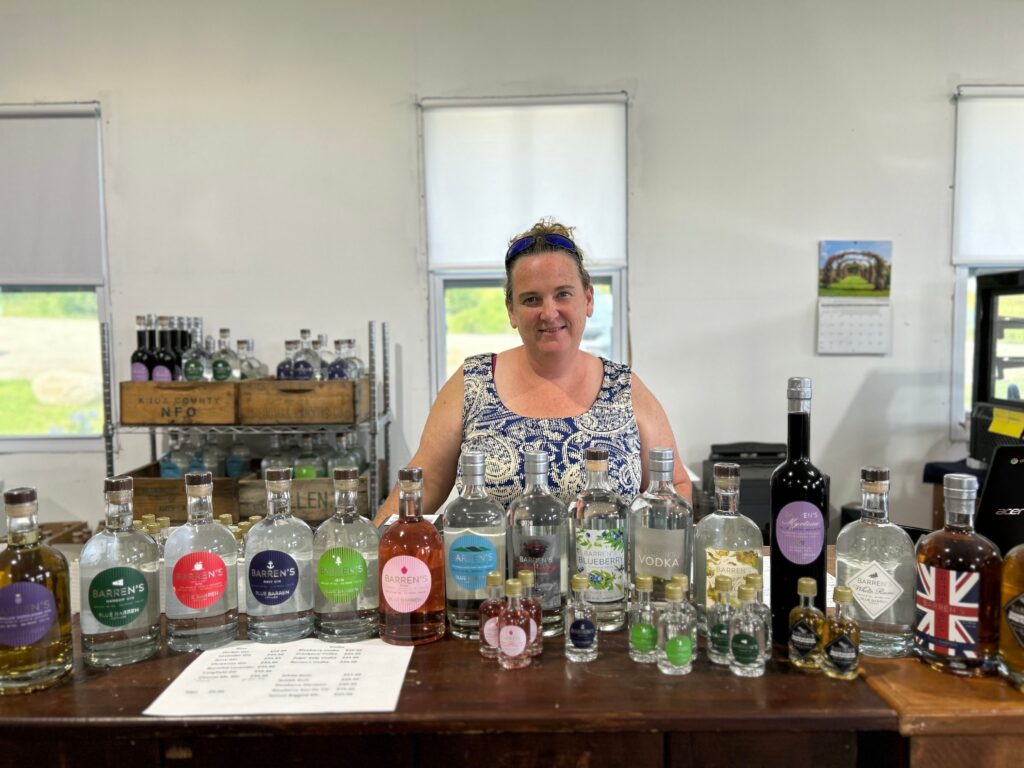
Here is Brodis Blueberries’ story in Ron’s words:
A Generational Tale: The Backstory of the Brodis farm and Ron Howard
Brodis Blueberries is a ninth generation Maine wild blueberry farm with 170 acres of wild blueberries that we sell to the public in many different ways. At one time there were 13 different houses on this farm. And over that nine generations, some of those neighbors up here on this land married each other. So we have nine generation branch, seven generation branch, and six generation branch, all from up here on this land. And you can’t drive down the farm roads without seeing the remains of an old cellar hole, and places where you have to drive around an old well. You see the rock walls and the work that the previous generations did to remove the trees, the bushes, the stumps, the rocks, and that’s what I take in every time you can’t drive through here without thinking about that and thinking about how I don’t want to lose what they’ve put into it. I want to keep that heritage and work going.
How’d I get here? I fell in love with my wife, Sonia Brodis, when she was a freshman in high school. We were high school sweethearts, married after college, so I became a quasi-blueberry farmer from a distance by marrying into the Brodis family 47 years ago.
My original background was working in human resources in the corporate world, and that was my primary occupation for many years while always helping out a little bit here at the blueberry farm. Then my father-in-law passed away seven years ago. The family was committed to wanting to keep this going and I was at the point of an early retirement. So in my retirement, I became a full-time blueberry farmer.
To Grow A Wild Crop: How a family-owned-and-operated Blueberry farm conducts business
I think way too many people when they think of blueberries, they picture those pints of the big, beautiful bunches of blueberries that they see at the grocery store year-round. Those have been hybridized, cultivated, changed, developed by man in wonderful ways. They’re a great product, but they’re grown all over the world, which is why in the wintertime, uh, we can have fresh cultivated high bush blueberries from Ecuador or China. Whereas the wild blueberries are called wild because that’s exactly what they are. They evolved after the glaciers receded 10, 000 years ago and they took over here in the state of Maine.
You see a wild blueberry field. Not one of those plants has ever been planted by a human being. They are every single one of them wild. What humans have done is to remove the trees, the rocks, the weeds and allow those wild blueberries to grow and take over the fields. So, yes, we manage them, but we don’t actually cultivate or grow them.
The farm is still owned by my mother-in-law, who’s 86 years old and still keeps all the financial records in her paper journals. Amazingly, I can ask her “what did you put on for a fertilizer 10 years ago?” and she can look back and tell me exactly what, how much it cost and when they, when they applied it. I’ve taken over doing all the crop management and harvesting, but so many other family members have stepped in.
My son Jeremy has started up the distillery to provide a different value-added product that we can use our wild blueberries for. My daughter Heidi has done a lot of our marketing and sales work. My wife Sonia is learning QuickBooks so we can get away from the journals and into the next generation with that, but also, she makes all the pies and sauces, while my mother-in-law still makes the jams.
And then the nieces, nephews, sister in laws, and grandkids all just arrive here for three weeks during harvest season in July and August to help with harvesting, cleaning, packing, and sales. There were 15 family members last year that were part of this operation up here, representing four completely different generations.
The several other amazing things about them are that there may be a field like across from our store here that might be ten acres and there may be a hundred different wild blueberry plants in that field. And every single one of those plants is genetically different than the other, which is extraordinary.
So, if you have a frost one day, maybe the plant that blossoms the next week is protected and is not damaged. They come in different colors and flavors, so it’s kind of like snowflakes. No two blueberries are the same and they make for a very special flavor, as well as amazing nutrition.
We have nine generations here, but wild blueberries go back 10, 000 years. And we have a lot of Maine wild blueberry growers that in some cases have struggled to survive and keep their own farms going. So, we’ve been actively getting engaged in different committees, projects, and promotions to help support the wild blueberry industry as a community that lasts many more generations as well.
A Partner In The Industry: Where CEI came into the picture
Prior to taking over here at Brodis Blueberries, I used to be at meetings ever now and then in an agricultural setting where CEI people were there. I kept seeing them bringing resources to different farmers and agricultural organizations. I didn’t really know a lot about them, but it just seemed like they were always doing good stuff.
I had a general business background, but I knew there was a lot of things that I didn’t know. I heard about the advisor program through CEI and I made an inquiry. My first advisor was Grace Mo Phillips and I remember the first session she was saying that she had absolutely no idea about wild blueberries. And I said, well, I don’t know a lot about how to financially analyze our business, where we need to go, then she said, I can help with that. So, with a lot of laughs and chuckles in between as we both learned so much through the process. She helped get the foundation for our finances in order to know where we were and what the opportunities might be for us to expand.
The other thing that the CEI advisors do is if I had a question and they maybe didn’t know the answer, they knew exactly who I should call and talk to and referred me to them. It was always like a resource for me, whatever the topic was that day that I was trying to figure out, I’d float it and chances are I’d get some direction.
A Word To The Wise: A piece of advice for aspiring business owners
I think the most important thing is to never assume that you know it all and just reach out to anybody and everybody that has experience.
Learn More About Brodis Bluberries:
- Website: Home | Brodis Blueberries
- Facebook: Brodis Blueberries | Hope ME | Facebook
- Instagram: Brodis Blueberries (@brodisblueberries) • Instagram photos and videos
Looking to Start or Grow Your Business?
You have big ideas. Our business experts are here to help you succeed. Through workshops, peer groups and one-on-one advising, we help people across the state get the information and support they need to start or grow their Maine business. In addition to providing general assistance to businesses at any stage, CEI has experts in child care and both marine and land-based food harvesting, growing and value-added production businesses, as well as tailored programs for women and immigrants and refugees.
